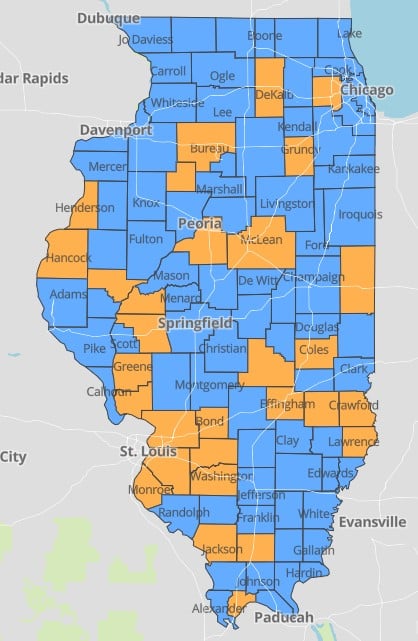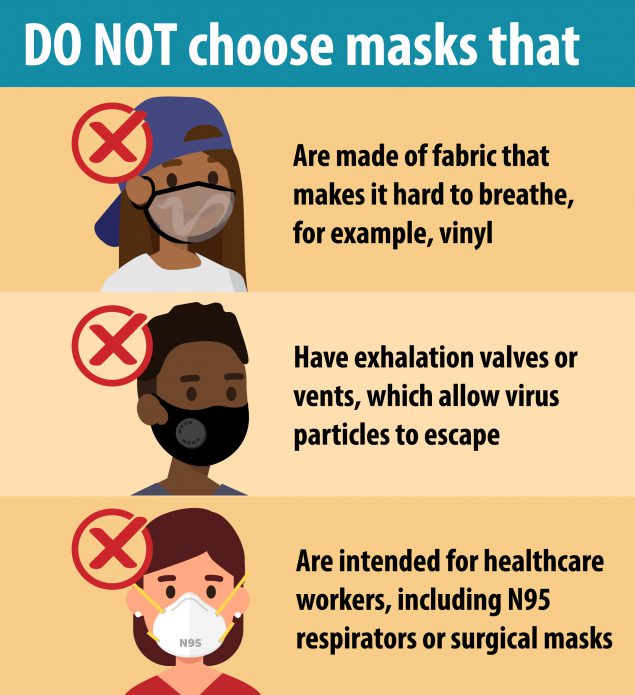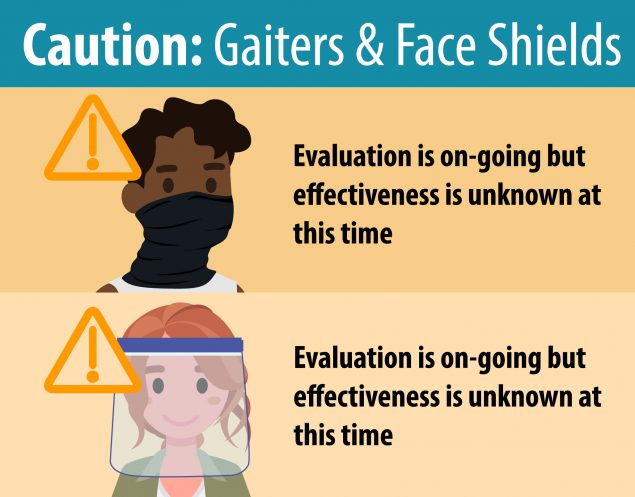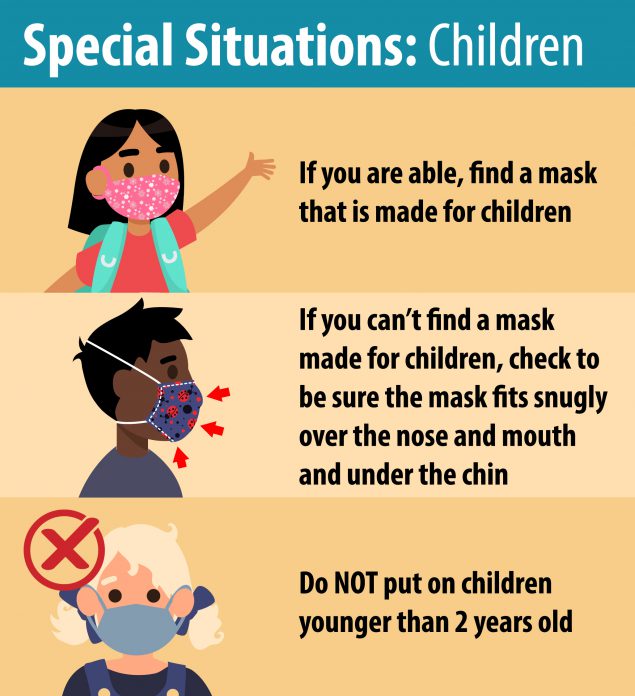Per DeKalb County Health Department Press Release:
Today, DeKalb County was announced at a warning level for Novel Coronavirus (COVID-19) based on the significant increase in the number of new cases per 100,000 residents and increase in positivity rate for the county.
Based on the regional metrics established by the Illinois Department of Public Health (IDPH), DeKalb County has changed from blue to orange on the County Level Risk Metrics Map. An orange designation indicates the presence of warning signs related to increased COVID-19 risk.

Eight different indicators are used to determine a county’s designation. If two or more indicators are trending unfavorably, the county is designated as orange. An increase in the indicators of case rates and test positivity rate are driving the move to the ‘orange’ designation for DeKalb County:
- DeKalb County is currently at 122 positive COVID-19 cases per 100,000 people- up from 57 positive COVID-19 cases per 100,000 the week before. The target established by the state is 50 cases per 100,000 people.
- Our test positivity rate is 8.4% for DeKalb County for last week – up from 4.9% the week before. The target is less than or equal to 8%.
Like other Counties that include a university, the return of the students to campus has resulted in a spike in the number of positive cases. This spike in cases has subsequently resulted in an adverse impact to our County’s positivity rate. Through case investigation, DCHD has determined that a large majority of the cases are specifically linked to large gatherings/parties that have taken place on or around campus.
Since March, Northern Illinois University (NIU) has been working collaboratively with DCHD to plan for the safe return of students this Fall. The primary goal was to proactively put measures in place in order to minimize spread of the virus. NIU has remained committed to enforcing mitigation efforts in order to protect the community. Today, NIU will be releasing additional mitigation efforts that have been jointly discussed among DCHD and NIU staff. DCHD and NIU will continue to work together to adopt additional mitigation efforts. DCHD reminds that aside from the university setting it takes all of our community to decrease the number of cases, taking personal accountability in following the 3 W’s: wear a mask, watch your distance, and wash your hands. Decisions we make about personal gatherings and parties, including those with extended family members, make a significant impact in mitigating or accelerating the spread of COVID-19 in our community.
- Wear a face covering. Wear a mask that covers your nose and mouth when you are in public and around people who don’t live in your household.
- Wash hands frequently. Use hand sanitizer.
- Watch your distance. Maintain at least 6 feet from others.
Face Masks—the Material Matters
Wearing a mask helps stop the spread of COVID-19, and it is important to choose the right type of mask and wear it correctly.
The type of mask you wear can increase or decrease its effectiveness. Make sure that your mask has two or more layers and is a washable, breathable fabric.
When you wear your mask, ensure that there are no gaps in coverage. Your mask should go over your mouth and nose.










